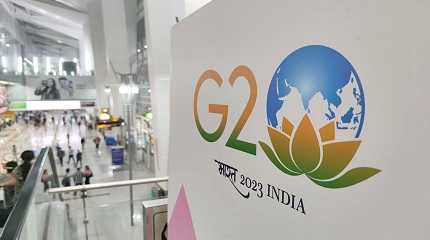
NEW DELHI (AP) — India’s Prime Minister Narendra Modi touted his country as well-placed to bridge gaps in the Group of 20 top economies and solve global problems, but many were skeptical ahead of the weekend’s summit given grave divisions within the bloc over the Russia’s war in Ukraine.
He was able to dispel those doubts, announcing a unanimous final agreement a day before the G20 summit ended Sunday that included language on the European war which both Russia and China signed off on.
British Prime Minister Rishi Sunak said the group agreed to a “very strong” message. German Chancellor Olaf Scholz called it a “success of Indian diplomacy,” adding “many did not think that would be possible beforehand.” And India’s foreign minister, Subrahmanyam Jaishankar, said the declaration “responds to the situation as it stands today.”
The statement had softer wording than last year’s G20 communique and failed to directly denounce Moscow. Instead, it cited a United Nations charter, saying “all states must refrain from the threat or use of force to seek territorial acquisition against the territorial integrity and sovereignty or political independence of any state.”




